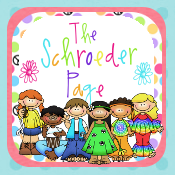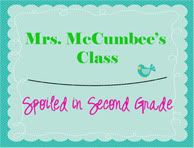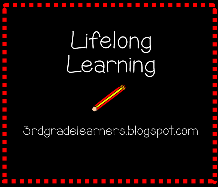I have had a couple of people ask about my reading workshop, so I am going to try to explain it. I have been doing some sort of this for many years, so I just keep tweaking it to adjust to my changes, my students, and my school's expectations.
Every day, my students participate in independent reading, choral reading, partner reading, listening to read-aloud, and writing. Most days, they also participate in a word work activity. While I do kind of use the Daily 5, Students only get to choose when to do independent word work, self-selected reading or independent writing. I typically designate the time where they will partner read and when they will listen to reading. (I know this is not completely aligned with the Daily 5, but it is what I have found that I am most comfortable with)
Currently, I have an hour and a half of interrupted literacy time daily. In addition, I have 20 minutes to a half hour dedicated to read-aloud, and another half-hour (4x per week) dedicated to writing/grammar lessons. Some days, I use my social studies or science time to squeeze in partner reading or word work.
My hour and a half block looks KIND OF like this:
We start with a 5-10 minute time period where we practice reading aloud a poem or quote that I have chosen for the week. Throughout the week, we discuss its meaning, rhyme scheme, interesting words, places for expression...as well as reading it as a class. Some days we read whole group, some days in rounds, some days just boys, some days with partners...you get the idea. These are usually seasonal or inspirational poems or quotes and really exposes kids to thinking about the meaning and word choice of authors.
Next we have a 25 minute block where students can choose whether they would like to read/write/or do word work.
After this first block, a student (who has been assigned) gets up to share reading and another gets up to share a recent writing. I keep a calendar of this information so that everyone is responsible for sharing both a reading/writing monthly. This takes about 5-10 minutes.
Next, I typically do a whole class mini-lesson introducing or reviewing a skill on our CAFE menu. I often use picture books or articles during this time. When I am done, students are placed with partners in real text. Using this text, they are asked to practice the skill that we just talked about. I use a lot of book excerpts, children's magazines, and comic strips for this partner reading. All of this takes about 20-25 minutes.
Once we complete this whole class activity, students move into another 25 minute block where they get to choose again whether they are doing word work, self-selected reading, or independent writing.
Some days our 90 minute block runs over just a little.. but not too much. I hate being too off schedule. :)
Now-during those 25 minute blocks, I work with CAFE skill groups, word groups, guided reading groups or lit circles, and do individual conferences. I like my CAFE, because it forces me to make my conferences short and sweet. I listen to the child read, discuss how he feels about his reading, and review his current focus skill with him. I schedule about 4-5 conferences a day. I meet with kids who have higher needs a lot more often than those kids who do not need as much support. (3x a week versus once every 2 weeks)
In addition, my students have a weekly writing assignment that should be completed prior to independent writing for the week, and a words activity assigned for each week,too. This year, they will write about reading through kidblog, and they will have various opportunities to do this. When I conference or work with small groups, I often try to support them in these assignments.
Students are encouraged to discuss ideas with partners and to review each other's work, but some are not assertive enough for this, so I often have to "prod them along.." I do this by occasionally making partner reviews part of the writing process or asking them to think, pair, share during class lessons.
I also use my daily read-aloud time to review/introduce CAFE skills, have book discussions, and to read like a writer. I like it because it helps to build community. At the end of each novel, students choose one main character to illustrate. I choose my favorites to represent each character, and we add them to a classroom display called "What a Character!" We use this wall all year long to remember previous characters/stories, to compare and contrast characters, and to ponder how certain characters would act in certain situations.
During my daily writing lesson, we discuss things like: the weekly writing assignment, its challenges, and its rubric and expectations, work on key writing skills including conventions, organization, voice, and word choice, and we also have some days where we just write--by ourselves, with partners, or in small groups.
This may sound like a lot of rambling, but I hope not. I hope that it kind of gives you an idea of what literacy in my classroom kind-of looks like most days. Not everything is set in stone, and I do use other elements occasionally, too. Right now, this works well for me, and my students like it, too. It is structured, but they have a lot of opporunity for choice.
Things that really haven't changed in 15 years of workshop approach--student choice, student sharing of books and writing, teacher conferences, and teacher listening to students read aloud during independent reading. Other things come and go or we do more or less of them,but typically these elements have been there from the beginning, and I don't have big plans of them going anywhere!
Friday, July 8, 2011
Subscribe to:
Post Comments (Atom)











5 comments:
Do you use the basal reader at all for mini lessons during read-alouds? My school has Treasures which has some really great resources for read-alouds, mini lessons and leveled readers. What I am thinking about is how to balance the two and possibly add in a novel.
Certainly, I think you xan use your basal for different elements of your workshop. I do not use it too often, but I do have a couple of stories I really like. I typically use novels for my big read aloud time, and shorter texts like picture books and articles for my CAFE skill lessons.
I guess, most of all, I believe the biggest key is too find the elements that work best for you and your students to develop as readers. Everyone's workshop doesn't have to look the same!
Hey Jennifer,
Yes, read The Leader in Me...our P. bought a book for the entire staff last year:)
4th Grade Frolics
Thank you, thank you, thank you!!! I am having a linky party about Daily 5/Cafe. Link up prayteachlove.blogspot.com
What do the students turn in to you (for accountability)? Also, do the students get to choose what they turn in? Lastly, how many choices do the students pick from for their word work/writing activities during the 25 minute blocks?
Thanks!!! I love Daily 5 and Cafe!
Post a Comment